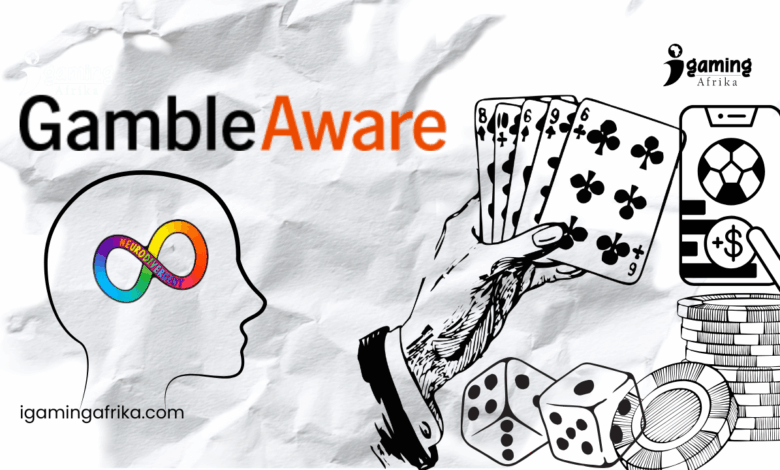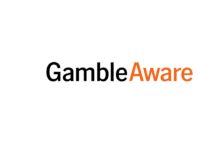GambleAware Calls for Awareness as Gambling Harm and Neurodivergence Intersect

A groundbreaking new study commissioned by GambleAware in partnership with IFF Research has uncovered the often-overlooked connection between neurodivergence and gambling harm, revealing how people with ADHD, autism, and other neurodevelopmental differences experience gambling in ways profoundly shaped by their cognitive and emotional worlds.
The accounts gathered show that neurodivergent people gamble for complex and deeply personal reasons. For many autistic interviewees, gambling offered a temporary escape from chronic loneliness and social exclusion. One participant described it as “an escape from bullying they faced and a way to pass time as a result of social isolation they experienced,” illustrating how gambling can provide a brief sense of relief or connection that everyday life often denies.
Others, particularly people with ADHD, described being pulled in by the rapid feedback loops of digital gambling platforms. The instant outcomes, bright interfaces, and fast-paced play aligned closely with the impulsivity and stimulation-seeking that characterise the condition. Several participants reported that hyperfocus could take over, locking them into long sessions that were difficult to step away from. One individual explained, “when I lose I want to try again,” highlighting the compelling nature of these games even when losses mount.
These behaviours, while understandable given the neurological profiles of participants, often led to significant harm. Financial consequences were the most widespread, with rapid, unplanned spending sometimes spiralling into debt or jeopardising essential expenses. The emotional toll was equally profound. Many spoke of intense shame, anxiety, and distress feelings amplified by pre-existing mental health conditions or by the sensory and social pressures they already navigated daily. Relationships frequently suffered too, as secrecy, guilt, or conflict around money created distance between partners, family members, and friends. Employment challenges also emerged, with some participants gambling during work hours or losing sleep to late-night sessions, which in turn affected performance and stability.
Quantitative analysis of the ALSPAC dataset reinforced these lived experiences. Individuals with ADHD or autistic traits were statistically twice as likely to experience gambling-related harm compared to those without such characteristics. This alignment between data and personal testimony highlights that neurodivergence is not merely a background factor but a central determinant in how gambling risk develops and unfolds.
Previous research from GambleAware has found that online casino games carry one of the highest levels of risk of gambling harm. The new report also found that the speed and style of gambling, particularly forms such as online slots, which involve repetition and sensory stimulation, could contribute to people with ADHD or autism being at greater risk. This is due to factors such as being more likely to gamble online, having sensory sensitivities, engaging in repetitive behavior, and processing information differently.
Read Also: BetBlocker Surpasses a Quarter of a Million Active Users in 2025
Yet neurodivergent people face significant barriers to seeking help. Many did not recognise their gambling as harmful until the consequences became severe, while others feared being judged, misunderstood, or dismissed by services not designed with their needs in mind. Rigid appointment structures, overwhelming assessments, inaccessible communication styles, and sensory-unfriendly environments all contributed to the feeling that services were built for a neurotypical user, leaving many neurodivergent people unable to access the help they needed.
Key Findings from the Research
- Higher Risk: Neurodivergent individuals, particularly those with ADHD or autism, face a significantly greater risk of gambling harm than neurotypical people.
- Evidence from ALSPAC: Individuals with ADHD or autistic traits are twice as likely to experience gambling-related harm.
- Underlying Factors: Impulsivity and difficulties in assessing risk, common in ADHD and autism, contribute to increased vulnerability.
- Support Gaps: Most gambling treatments and messaging are designed for neurotypical users, leaving neurodivergent individuals underserved.
- Need for Adapted Interventions: Approaches such as autonomy-supportive strategies and cognitive behavioural therapy (CBT) may better address the needs of neurodivergent gamblers.
- Research Gaps: Experiences of other neurodivergent groups (dyslexia, dyspraxia, dyscalculia) are underexplored. Intersectional factors including gender, ethnicity, and socioeconomic status require further study.
The report argues that genuine change must begin with rethinking support systems from the ground up. Services need to be flexible, personalised, and accessible, offering clear communication, adaptable session formats, and alternatives to overstimulating environments. Support should also be rooted in autonomy. The report emphasises that treatment should prioritise the interests and goals of the persons being supported ensuring people feel heard rather than managed. Peer support models emerged as particularly powerful, giving neurodivergent individuals the chance to engage with others who share similar experiences and can offer validation without judgement.
Equally important is building a workforce that truly understands neurodiversity. The research recommends training that goes beyond awareness and one that is co-designed and delivered by neurodivergent people themselves. Better data collection and long-term research will also be essential, especially for neurodivergent groups like those with dyslexia, dyspraxia, or dyscalculia, who remain almost entirely absent from current gambling harm literature.
Highlighting the urgency of these findings, Haroon Chowdry, GambleAware Director of Evidence and Insights in a press release said: “Gambling harms can affect anyone. However, this research shows that people who are neurodivergent are particularly at risk of experiencing gambling harm, and may have specific needs in terms of treatment and support. The research also shows that the way many gambling games operate, particularly online casino games with repetition and sensory stimulation, can especially contribute to people with ADHD and autism experiencing gambling harm. It is vital that people know the risks associated with gambling, which is why we are urging the introduction of better signposting and mandatory health warnings on gambling advertising, so people know where to go for help and support.”
Clare Palmer, Associate Director at IFF Research, emphasised the collaborative approach of the study: “We spoke directly with neurodivergent individuals who gamble to understand their gambling journey, first-hand experiences of gambling harms, and perspectives on how treatment and support can best be shaped to work for them. We are excited now to be in the thick of the third and final phase of this research, co-designing tools with Ara and our Advisory Panel of professional and lived experience experts. This key step will ensure the research has a meaningful impact on the future delivery of gambling support services for neurodivergent people.”
Whether the sector chooses to act on these insights will define whether neurodivergent people continue to fall through the cracks or finally receive support shaped with their minds and experiences at the centre.




















